
For my curriculum exemplar I chose using digital camera technology. Remembering the first year I ever taught, I integrated photography into my one of my social studies lessons. We used an old manual camera and, of course, we had to wait many days to get the prints back. Nevertheless, the students loved the process of taking pictures. These days, we can do so much more using digital cameras.
I found the article on the site Education World. http://www.education-world.com/a_tech/tech/tech148.shtml The article goes on to describe the many uses for digital cameras in school. Students can take pictures for a project or other various activities and then publish those pictures on the Web. For example, the article describes an actual lesson where students created a virtual reality movie using digital pictures. This is a great article for educators because it includes two dozen digital camera activites teachers can use in the classroom. In addition, this article supports the idea of the importance of students becoming creators of content.
I found an interesting social studies lesson on the Web that uses digital camera technology called Know Your Community. http://pegasus.cc.ucf.edu/~ucfcasio/combroch.htm
This lesson is a good example of how you might use digital cameras in the classroom. This lesson offers students the opportunity to immerse themselves and learn about the community in which they live. After compiling photographs of various locations and /or landmarks, they then can create a brochure, web page or video about their city. Lastly, the chamber of commerce is contacted and a set of brochures, or video is given to them.
I chose this exemplar because I was struck by the many ways teachers can use digital cameras in their lessons. In addition, there is an ease of use concerning digital cameras. Photographs come out immediately. Pictures can be viewed on screen, Smart Board or e-mailed. It seems that students would be able to easily use and also be engaged while using digital cameras. In addition, from my previous experience, I found that students become more involved with the subject. Students learn to reason and plan what pictures to take and why those pictures are needed. You are also giving them a certain amount of independence and choice.
I chose this exemplar because I was struck by the many ways teachers can use digital cameras in their lessons. In addition, there is an ease of use concerning digital cameras. Photographs come out immediately. Pictures can be viewed on screen, Smart Board or e-mailed. It seems that students would be able to easily use and also be engaged while using digital cameras. In addition, from my previous experience, I found that students become more involved with the subject. Students learn to reason and plan what pictures to take and why those pictures are needed. You are also giving them a certain amount of independence and choice.
The lesson Know Your Community hit me on a more personal level. I immediately envisioned doing this lesson with my students because many of my students have never left their neighborhood. Their knowledge of the different areas of Durham is very limited. Sure, they talk about Durham in the classroom; however, they have never physically been to other parts of Durham. In addition, the city of Durham is in the process of revamping its image. A school project like this could "give back" and benefit Durham by bringing positive attention to the city.
Some questions I would raise would be the question of how many digital cameras could a classroom teacher get for his/her class. Ideally it would be great if pairs of students could share a camera. I wonder where a teacher could get multiple cameras for classroom use? In addition, the concern for damage to the camera would be raised.
As an ESL teacher, I work with small groups. However, could I take just a few of those students out into Durham to take pictures? I would think not. I would have to do this project with a classroom teacher. However, each grade level pretty much goes on one or two field trips a year. Choosing to take a tour of Durham would have to be approved.
Some questions I would raise would be the question of how many digital cameras could a classroom teacher get for his/her class. Ideally it would be great if pairs of students could share a camera. I wonder where a teacher could get multiple cameras for classroom use? In addition, the concern for damage to the camera would be raised.
As an ESL teacher, I work with small groups. However, could I take just a few of those students out into Durham to take pictures? I would think not. I would have to do this project with a classroom teacher. However, each grade level pretty much goes on one or two field trips a year. Choosing to take a tour of Durham would have to be approved.
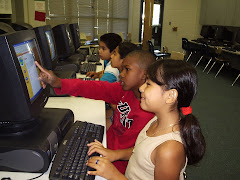.jpg)
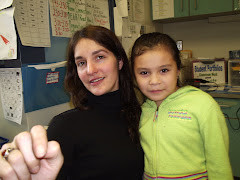.jpg)
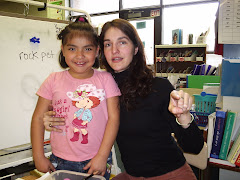.jpg)

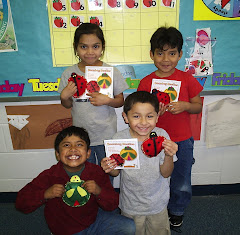.jpg)
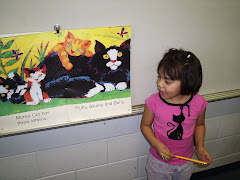.jpg)
7 comments:
The simplicty and ease of use of the digital camera make it a perfect tool for learning and yet I hadn't really thought about specific ways to adapt its use to my classroom. I teach high school social studies - us history and civics and world history. I want to take the nc standard course of study and go through it goal by goal and see where I can incorporate the digital camera (in the case of most of my students -- their cell phones) and send them off with homework assignments relevent to the curriculum. Maybe for world history I could have them take pictures of anything in the community that reflects the presence of people from other cultures in our community, for example, a chinese restaurant or a hispanic grocery store. I especially liked the getting to know the community idea for my civics class. Thanks for the ideas.
Susan,
That sounds like a good way to use digital cameras. There is another article online called: Digital Cameras: Activities, Assessment and Administration
http://drscavanaugh.org/digitalcamera/articles/applic.pdf
This offers some more examples (on the high School level, as well) of how you can use digital cameras in your classroom. The article describes in detail the activities and then assesses the the activities.
Hi Ingrid,
Great applications of using digital cameras! Thanks for sharing! I love some of these ideas. One of my friends teaches a whole elective at Hunter Elem in Wake called "Shutter Bug". The focus of the whole class is using digital images in the curriculum. I'm going to share these sites with her!
Digital cameras are a technology that can be used from Kindergartners to 12th graders. I watched a teacher in Durham do a neat Spring unit last year. The kids did a treasure hunt outside with the cameras, then used KidPix to tell spring stories!
I'v also used them to transport kids back into time and into other places....imagine taking kids pictures....then photoshop them into a colonial era picture, or riding an amoeba, or flying in a space shuttle....with kids images in these photos, they can then write essays about what they see, hear, smell, feel....
Great idea from Susan to use cell phones!
You all have me excited!
CMB
yo...check out my blog. I made a post especially for you. Digital cameras rock! I just used them this past week....
There are so many ways we can use digital cameras...
Cheryl commented on how you can use digital cameras to transport kids back into time and into different places. I found a similar social studies lesson on the site pics4learning.com
where after kids research a particular region/state/country they locate and save a picture online of that place and then combine it with a picture of themselves (using image editor). There can be a lot of writing activities around a lesson like that!
Andrea demonstrates a great lesson she used in her science class. She had her students document erosion around their school and then they made a powerpoint presentation using the pictures.
Pretty cool!
Ingrid,
The use of the digital camera in the classroom is an excellent idea. I really like the idea of integrating digital pictures into social studies. We teach the students about primary and secondary sources. The students' digital pictures would serve as primary sources. Also, what a hands on way to teach the English language to ESL students.
What do you think about writing grants to get ditigal cameras in the classroom? The thought just came to me. I'm sure it can be done. (p.s. - I did say mid-week, right. LOL)
Thanks for the how-to's and your comments on using digital photography. I am totally taken by the ease of digital camera use by students, parents and teachers. I got to enjoy using 1 digital camera with 8 kids on a recycling tour last year. The gathering, editing and sharing photos enabled great conversation and broadened vocabulary so pleasantly. A bonus is ease of reproduction, minus the cost of developing and hassles of not having enough "prints" to share with everyone! Kids of all ages love photos.
You and I are on a similar thought wave regarding making communities come alive for our ELL students. As your "Know the Community" commentary noted, many newcomers have little chance to navigate about town, so an online tour is just the answer! And of course, it pulls parents and other community members in. The point of helping Durham is well noted also. I hope to get more time to communicate with you this weekend. Thanks.
Post a Comment